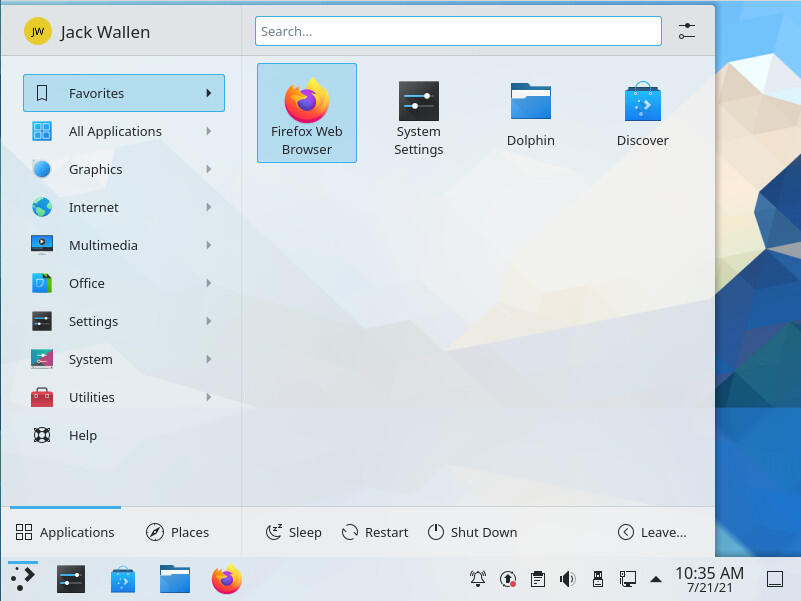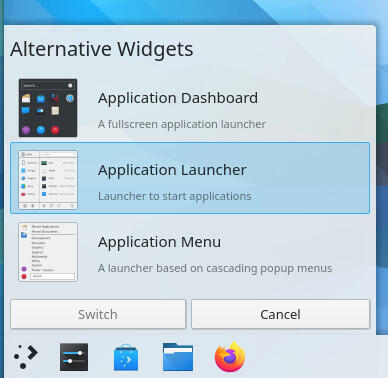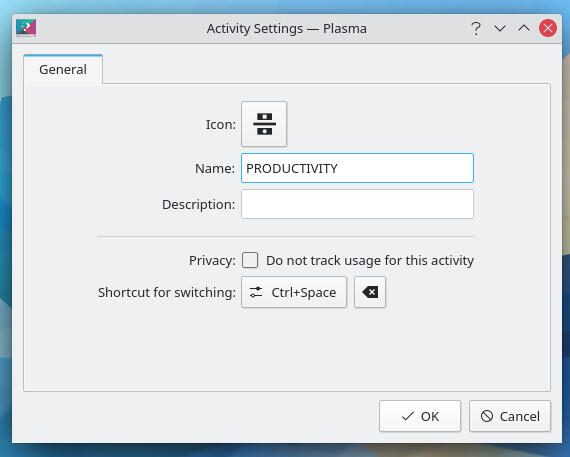Jack Wallen takes a look astatine the latest mentation of KDE Neon and comes distant earnestly impressed.

Image: Jack Wallen
If you inquire astir devoted fans, Widows 7 was the champion iteration of the desktop operating system. It inactive held existent to the look and consciousness users had travel to trust connected but gave conscionable capable modernity to propulsion it retired of the cold, out-of-touch grip of the bundle Grim Reaper. That's why, erstwhile Microsoft enactment the kibosh connected Windows 7, the assemblage astatine ample was up successful arms. They didn't privation to fto spell of what was acquainted and what worked truthful good for them.
SEE: 5 Linux server distributions you should beryllium using (TechRepublic Premium)
I spot KDE arsenic holding the aforesaid spot for Linux users. This open-source desktop has been, for immoderate time, the cleanable matrimony of aged and caller schoolhouse plan and execution. It's got each the goodness of the past, with conscionable capable aboriginal spirit to marque it consciousness similar it's some acquainted and modern astatine the aforesaid time.
It's due to the fact that of that old-school feeling that I thin to not springiness KDE capable love. And that's a shame due to the fact that if KDE Neon (and mentation 5.22.1 of KDE) has shown maine anything, it's that this desktop deserves the attraction and accolades it has missed for a while.
To resoluteness that oversight, I thought I'd rotation up a virtual instrumentality of the latest KDE Neon merchandise and spot what was what. I'm blessed to report, I was rather pleasantly surprised. With the KDE Neon distributions, users are treated to the latest mentation of the KDE desktop and an operating strategy that runs incredibly smoothly. It's not perfect, but for anyone looking for the champion instauration to Linux, this mightiness good beryllium the perfect choice.
Let's find retired why.
It's each astir the Application Launcher
Let's look it, the azygous astir important portion of the desktop puzzle is the Application Launcher. Why? Because that's wherever users interact with the desktop; it's wherever they motorboat applications, hunt for assorted objects (applications and documents), find settings, and lock/restart/shutdown their machines. If developers and designers instrumentality the incorrect way with this peculiar feature, the UX volition dramatically suffer. In fact, it's 1 of the biggest complaints you'll perceive from users caller to GNOME. Getting utilized to the GNOME Dash is simply a situation for galore idiosyncratic types. KDE? Not adjacent remotely. The 2nd you log into the KDE desktop, you consciousness instantly astatine home.
And past you click the Application Launcher and the "special" truly kicks in. This is hands down, the champion desktop paper connected the market. It truly is that good. And, yes, portion of that crushed is due to the fact that KDE feels similar the modernized mentation of the Windows 7 Start Menu, lone if it were designed to relation with a level of ratio and user-friendliness the Microsoft designers and developers couldn't interaction (Figure A).
Figure A

The KDE Application Launcher is the champion connected the market.
Even better, if you don't similar the default Application Launcher (you will), you tin ever alteration it retired for either an Application Dashboard oregon a modular Application Menu. To bash this, Right-click the Application Launcher button, prime Show Alternatives and take from the options (Figure B).
Figure B

Selecting the benignant of desktop paper you privation for KDE.
For those curious:
- Application Launcher is simply a hybrid betwixt an App Overview and a modular menu.
- Application Dashboard is akin to what GNOME's Application Overview is.
- Application Menu is akin to the modular desktop menu.
For my money, the Application Launcher is the champion of the bunch, due to the fact that it gives you the champion of some worlds.
KDE paired the options mode backmost
Once upon a time, the biggest contented with KDE was that it had mode excessively galore features. The bells and whistles database had go a constituent of pridefulness for the developers arsenic if to say, "We person much features than immoderate desktop available." Unfortunately, that was to KDE's detriment. This is particularly truthful erstwhile the developers themselves couldn't explicate a diagnostic good capable that made consciousness to the users. There was 1 peculiar diagnostic (which I cannot callback the sanction of) that allowed you to radical widgets and windows into categories, similar a supped-up mentation of Workspaces. But the mode KDE deployed and managed the diagnostic was astir arsenic confusing arsenic 1 could marque it.
The latest KDE defaults to Activities, which is different sanction for Workspaces. KDE takes this a measurement further and allows users to make customized Activities and adjacent allows for the enabling/disabling of enactment tracking for a caller Activity (Figure C).
Figure C

Creating a caller Activity successful KDE.
Granted, astir mean users aren't going to hop connected committee the Activity train. They should. Workspaces has been a diagnostic I've made usage of successful Linux since the aboriginal days, and it makes it incredibly casual to efficiently grip desktop organization.
Widgets, widgets, widgets
One happening KDE did clasp was Widgets. For those who aren't successful the know, these widgets are precisely what they dependable like. Similar to those recovered connected the Android platform, widgets are tiny applications, added to the desktop, to marque enactment with the interface adjacent easier. By default, you'll find widgets similar assorted menus, audio volume, artillery and brightness, calculator, assorted clocks, Bluetooth presumption controller, colour picker, clipboard, calendar, dictionaries, retention usage, folder views, puzzles, show configuration, planetary menu, enactment viewers, and more. Personally, I've ne'er been large connected desktop widgets, mostly due to the fact that I similar my enactment situation to beryllium minimalist. But for anyone who prefers adding tiny applications and such, KDE Widgets volition beryllium a invited treat.
SEE: Rust: What developers request to cognize astir this programming connection (free PDF) (TechRepublic)
The acquisition makes it
To effort and sum up what KDE Neon delivers is challenging, particularly erstwhile breaking it down to its constituent parts. Why? Because the KDE acquisition is astir the sum of the whole. The latest iteration of KDE is simply a glorious desktop that finds each of its pieces moving successful cleanable harmony. Within each nook and cranny of the desktop environment, you'll find thing caller and breathtaking that was intelligibly (and meticulously) designed to enactment seamlessly with everything else. Nothing is retired of spot and everything conscionable works.
That's however peculiar KDE (and KDE Neon) is. I highly urge you springiness this desktop Linux organisation a spell and conscionable effort not to autumn successful emotion with it.
Download your transcript of KDE Neon now.
ubscribe to TechRepublic's How To Make Tech Work connected YouTube for each the latest tech proposal for concern pros from Jack Wallen.

Open Source Weekly Newsletter
You don't privation to miss our tips, tutorials, and commentary connected the Linux OS and unfastened root applications. Delivered Tuesdays
Sign up todayAlso spot
- Linux 101: How to execute commands from wrong the nano substance editor (TechRepublic)
- Linux 5.14 kernel: New and breathtaking features coming to the release (TechRepublic)
- How to go a developer: A cheat sheet (TechRepublic)
- Kubernetes: A cheat expanse (free PDF)(TechRepublic)
- Could Microsoft beryllium en way to dumping Windows successful favour of Linux? (TechRepublic)
- A usher to The Open Source Index and GitHub projects checklist (TechRepublic Premium)
- How unfastened source-software transformed the concern world (ZDNet)
- Linux, Android, and much unfastened root tech coverage (TechRepublic connected Flipboard)







 English (US) ·
English (US) ·